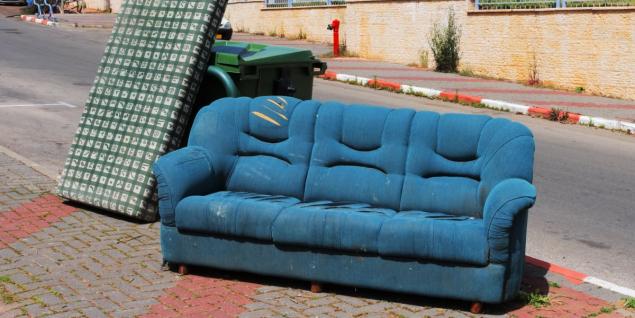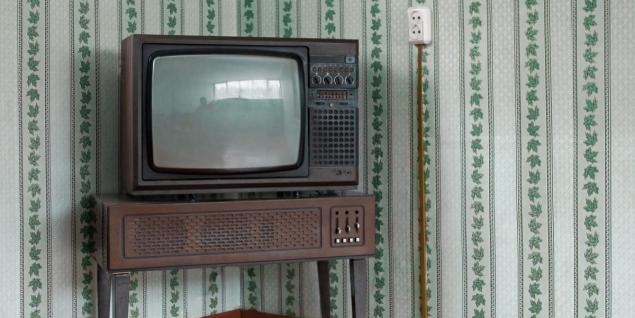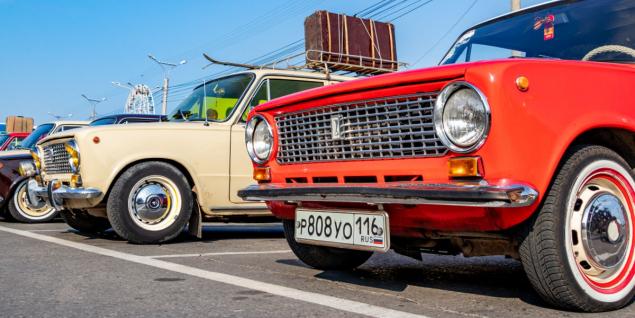134
Why Soviet things have not failed for decades, and modern junk quickly goes to waste
Even today you can hear that in the USSR sold only goodness. They say that clothes, shoes, furniture, and equipment served for many years, and were distinguished by enviable reliability. And some people manage to use things made in the USSR even today. Although from the moment of production, of course, has passed more than a decade.
And today's edition. "Site" I wonder if the Soviets were as good as they thought. What is the secret of their unusual durability? And why do modern products rarely please the buyer with reliability?

Claims to the quality of modern things are quite understandable. After all, if in the last century people could make reliable cars, furniture, dishes and so on, why can’t they now? After all, during this time, many new technologies appeared, the use of which would have affected the quality of any goods for the better.

First of all, it is worth saying that quality was really monitored in the USSR. GOST existed for a reason, and the production of each product was strictly regulated. And with all the rules of production, it was hard to make a bad product.
The modest incomes of Soviet citizens also played a role. For any serious purchase you had to save a long time, so the choice of goods was treated as responsibly as possible.

Imported goods produced by private companies were often better. And if the buyer could get such a foreign thing, it was considered a great luck. Therefore, to consider Soviet things the most reliable and best in the world is a little naive.
An ordinary person, soberly assessing his financial capabilities, understood that he would not be able to update the conditional TV in the coming years. Therefore, the purchase should last for many years. Therefore, only the most reliable, time-tested (and other people) was chosen.

In addition, the deficit forced to treat all things with care. After all, even with savings, it was not always possible to just go to the store and buy what you need. Therefore, many goods really served for decades, benefiting not only the buyer, but also his children and even grandchildren.
Because of the same scarcity, many things were much easier to repair than to buy new ones. Therefore, Soviet citizens had to be masters of all trades to repair failing equipment, furniture, cars and everything else. The main thing was to get the necessary parts.

Today, the buyer is available a huge range of goods of various quality. There are cheaper and more expensive, and the middle price segment. And having bought a high-quality (and relatively expensive) product, a person may well expect that the thing will last him long enough. Not everyone is willing to pay for this quality.

At the same time, the modern manufacturer is really not interested in the product serving the user for too long. After all, then he will simply have no one to sell his future products. And that already threatens bankruptcy. And in this fight for survival, all means are good.
What do you think of that? Tell me in the comments.
And today's edition. "Site" I wonder if the Soviets were as good as they thought. What is the secret of their unusual durability? And why do modern products rarely please the buyer with reliability?

Claims to the quality of modern things are quite understandable. After all, if in the last century people could make reliable cars, furniture, dishes and so on, why can’t they now? After all, during this time, many new technologies appeared, the use of which would have affected the quality of any goods for the better.

First of all, it is worth saying that quality was really monitored in the USSR. GOST existed for a reason, and the production of each product was strictly regulated. And with all the rules of production, it was hard to make a bad product.
The modest incomes of Soviet citizens also played a role. For any serious purchase you had to save a long time, so the choice of goods was treated as responsibly as possible.

Imported goods produced by private companies were often better. And if the buyer could get such a foreign thing, it was considered a great luck. Therefore, to consider Soviet things the most reliable and best in the world is a little naive.
An ordinary person, soberly assessing his financial capabilities, understood that he would not be able to update the conditional TV in the coming years. Therefore, the purchase should last for many years. Therefore, only the most reliable, time-tested (and other people) was chosen.

In addition, the deficit forced to treat all things with care. After all, even with savings, it was not always possible to just go to the store and buy what you need. Therefore, many goods really served for decades, benefiting not only the buyer, but also his children and even grandchildren.
Because of the same scarcity, many things were much easier to repair than to buy new ones. Therefore, Soviet citizens had to be masters of all trades to repair failing equipment, furniture, cars and everything else. The main thing was to get the necessary parts.

Today, the buyer is available a huge range of goods of various quality. There are cheaper and more expensive, and the middle price segment. And having bought a high-quality (and relatively expensive) product, a person may well expect that the thing will last him long enough. Not everyone is willing to pay for this quality.

At the same time, the modern manufacturer is really not interested in the product serving the user for too long. After all, then he will simply have no one to sell his future products. And that already threatens bankruptcy. And in this fight for survival, all means are good.
What do you think of that? Tell me in the comments.
Found a recipe from Soviet times, in the next three days I will treat home Riga cheesecake
Nutritionist enlightened, it turns out I've been weighing myself wrong all my life























